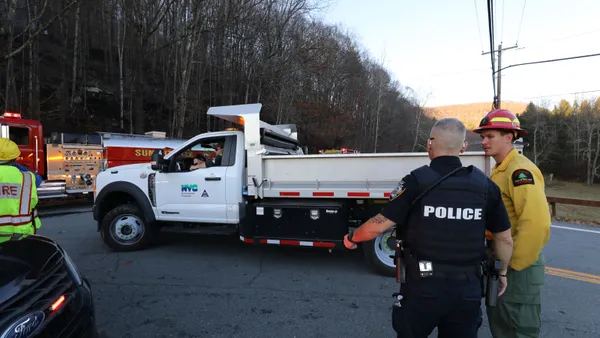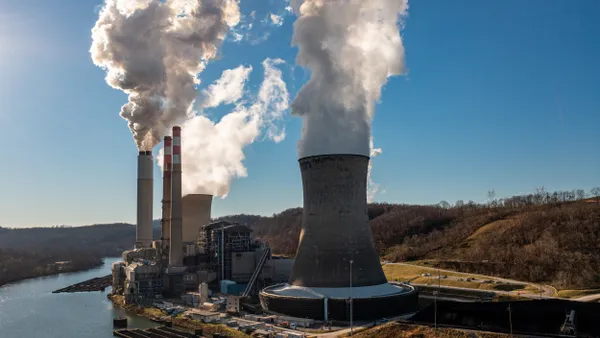Dive Brief:
- Members of a federal climate science panel, disbanded by the Trump administration in 2017, have reformed independently and released a new report designed to help local leaders integrate climate science into their planning.
- The new report acknowledges cities not only face threats from extreme weather, but also “slower-onset changes” including higher nighttime temperatures and rainy day flooding. It recommends strategies for local governments to consider climate change in decisions like infrastructure building and zoning, including refining climate data, improving cost-benefit assessments and adopting tools like citizen science and artificial intelligence.
- The report comes from scientists formerly on the Advisory Committee for the Sustained National Climate Assessment, which was meant to advise the government based on the findings of the National Climate Assessment. Under an invitation from New York Gov. Andrew Cuomo, the independent group is now known as the Science to Climate Action Network (SCAN) and will give technical advice to cities and businesses.
Dive Insight:
SCAN, which has backing from the state of New York, Columbia University and the American Meteorological Society, is designed to be a more citizen-focused version of the federal committee, translating the findings of the National Climate Assessment for all levels of government. Indeed, one of the key recommendations in the new report is to have a non-federal "climate assessment consortium" with more state, local and tribal voices. SCAN says it hopes to be a “backbone organization” that can build collaboration, work on research practices and disseminate data to community groups and governments.
"Local governments and communities need help to use climate science to evaluate how mitigation and adaptation opportunities interact with their broader goals,” said Richard Moss, a senior research scientist at Columbia University's Earth Institute and the lead author of the report. “This new approach will make it easier to develop science-based pathways to address climate threats to local economic growth, infrastructure, and public health.”
Among the recommendations in the report is for governments to accelerate the use of artificial intelligence (AI) and machine learning to better analyze climate risks. With cities facing threats as varied as disrupted water supplies, rising tides and infrastructure damage from heat, AI could “reveal impacts, insights, and options that would be difficult to otherwise discover,” the report finds. The report also recommends better use of citizen science to “fill many long-standing data gaps” that could be especially useful to local governments.
The Fourth National Climate Assessment, released in November, warned climate change “creates new risks and exacerbates existing vulnerabilities in communities across the United States,” including more extreme weather and infrastructure challenges. Cities have stepped up their own work to adapt to a changing climate and reduce their carbon footprint; more specialized data and approaches can help give all levels of government the right tools to meet those challenges.










